1. The Beatles at Shea Stadium (1965)
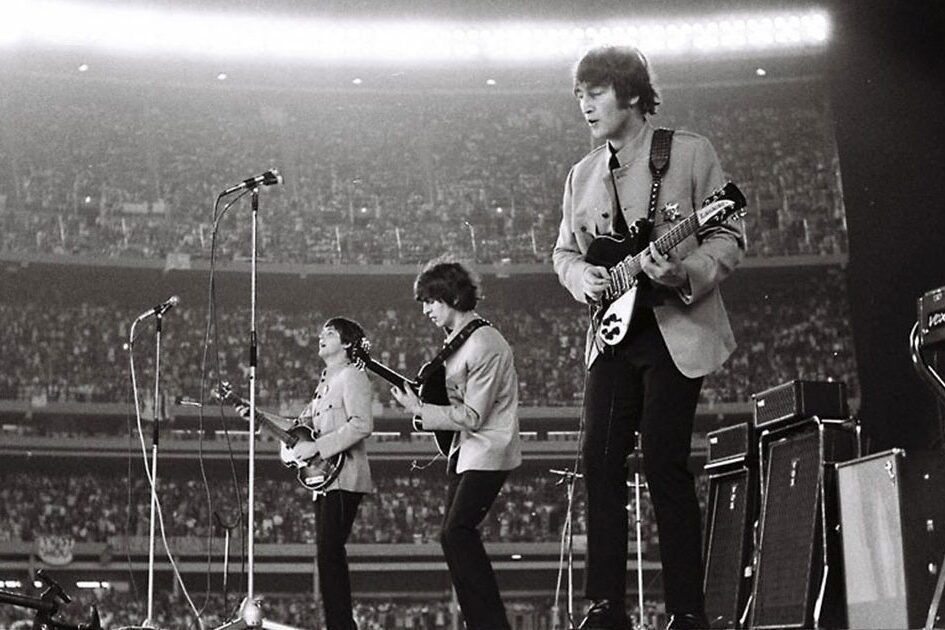
There are nights when music becomes something larger than sound, and The Beatles at Shea Stadium was one of them. Over fifty thousand fans screamed so loudly the band could barely hear themselves, but the joy was undeniable. John Lennon laughed mid-song, Paul McCartney tried to keep rhythm, and the world collectively fell in love. It was the first true stadium concert, a moment that proved music could fill cities, hearts, and history books. That evening in New York was more than loud; it was life-changing. From then on, live shows became spectacles of emotion and unity.
2. Jimi Hendrix at Woodstock (1969)
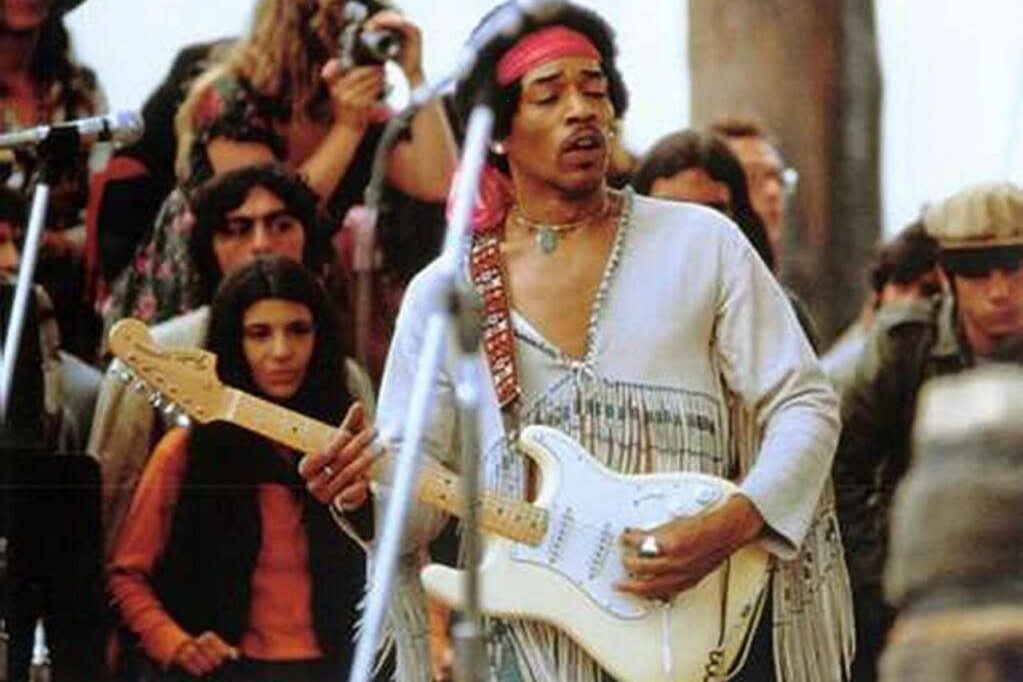
When Jimi Hendrix stepped onto the Woodstock stage, the festival was fading into exhaustion, but he revived it with lightning. His guitar became his voice, bending The Star-Spangled Banner into a haunting echo of the times. The crowd stood still, mesmerized by his mix of chaos and beauty. It wasn’t just a performance; it was a statement about freedom, pain, and rebellion. Hendrix played like he was channeling something bigger than himself. That morning, with the sky still foggy and hearts still open, he transformed sound into art and protest into poetry. Music felt alive again that day.
3. Queen at Live Aid (1985)
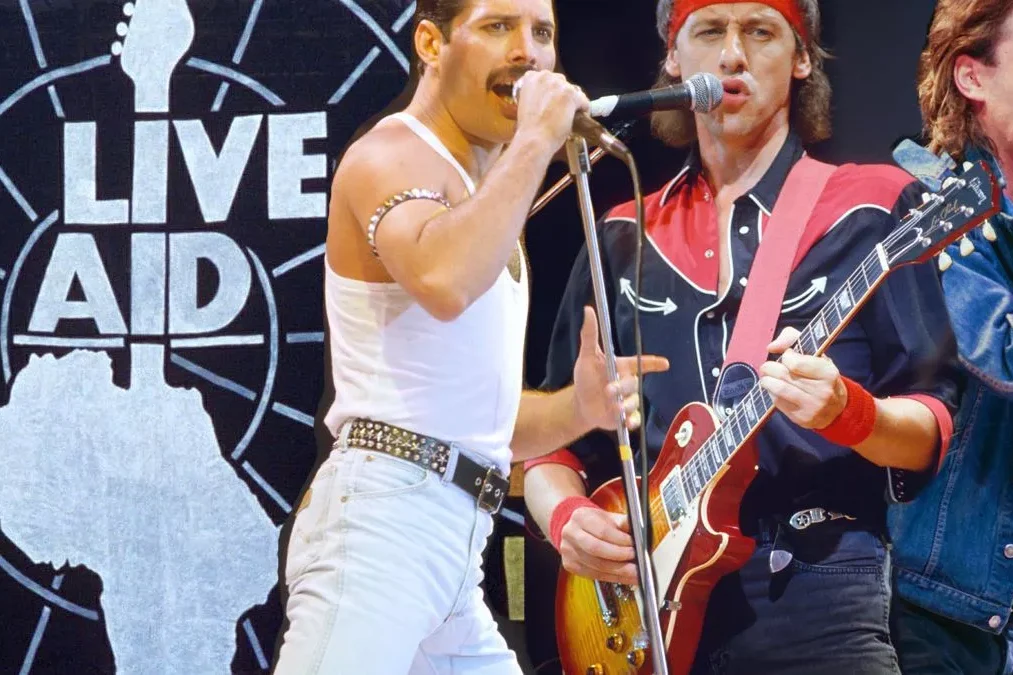
No stage moment feels as electric as Queen at Live Aid. Freddie Mercury strutted onto Wembley’s stage with confidence that could move mountains. When he led the crowd in rhythmic claps during Radio Ga Ga, the energy felt infinite. It was unity in motion, millions of people singing as one across the globe. The set was only twenty minutes, but it changed how the world viewed live music. Queen didn’t just perform songs; they performed emotion. Mercury’s voice soared, Brian May’s guitar roared, and history took note. That day, music truly became the universal language of hope.
4. Bob Dylan at Newport Folk Festival (1965)
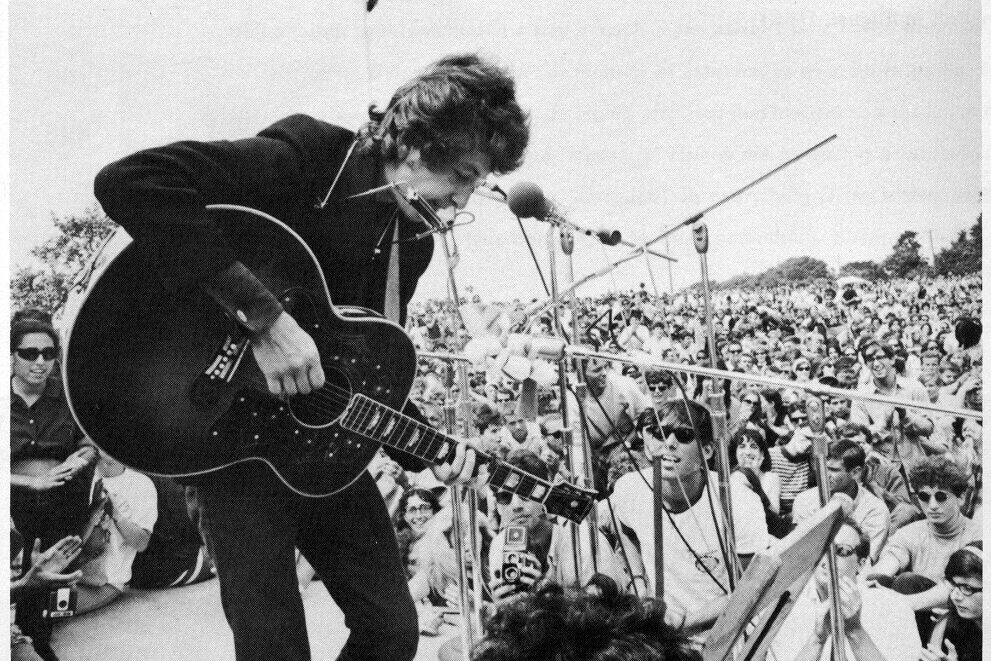
When Bob Dylan plugged in his electric guitar, the audience didn’t know how to react. Some booed, others cheered, but everyone watched as folk music changed forever. His decision to go electric marked a daring shift from protest to poetry with volume. Songs like Maggie’s Farm shook tradition, proving creativity cannot be contained. Dylan’s calm defiance showed courage, not rebellion. He wasn’t abandoning his roots; he was evolving them. That night symbolized transformation, the moment sound stopped being safe and became revolutionary. Dylan didn’t just change music; he gave it permission to grow louder and braver.
5. Nirvana at Reading Festival (1992)
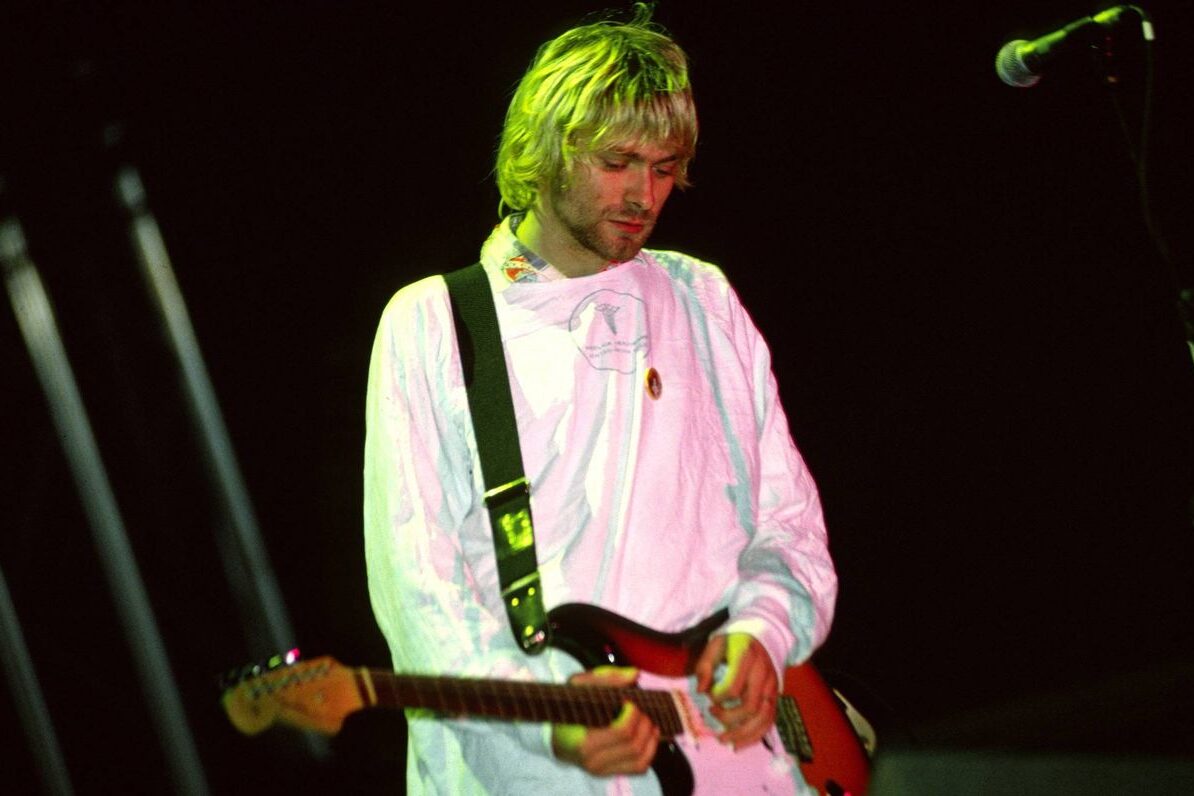
When Nirvana opened Reading Festival, no one knew what to expect. Kurt Cobain rolled onstage in a hospital gown, grinning, guitar in hand. What followed was pure, unfiltered energy. Smells Like Teen Spirit sent the crowd into euphoria. It was messy, loud, and beautifully real. The band didn’t just play songs; they poured out their chaos. Every shout, every chord, felt like truth. By the end, even doubters cheered. Nirvana didn’t need perfection; they needed honesty, and that’s exactly what they gave. Reading became the ultimate grunge moment, where vulnerability and rebellion met perfectly on stage.
6. Michael Jackson at Motown 25 (1983)
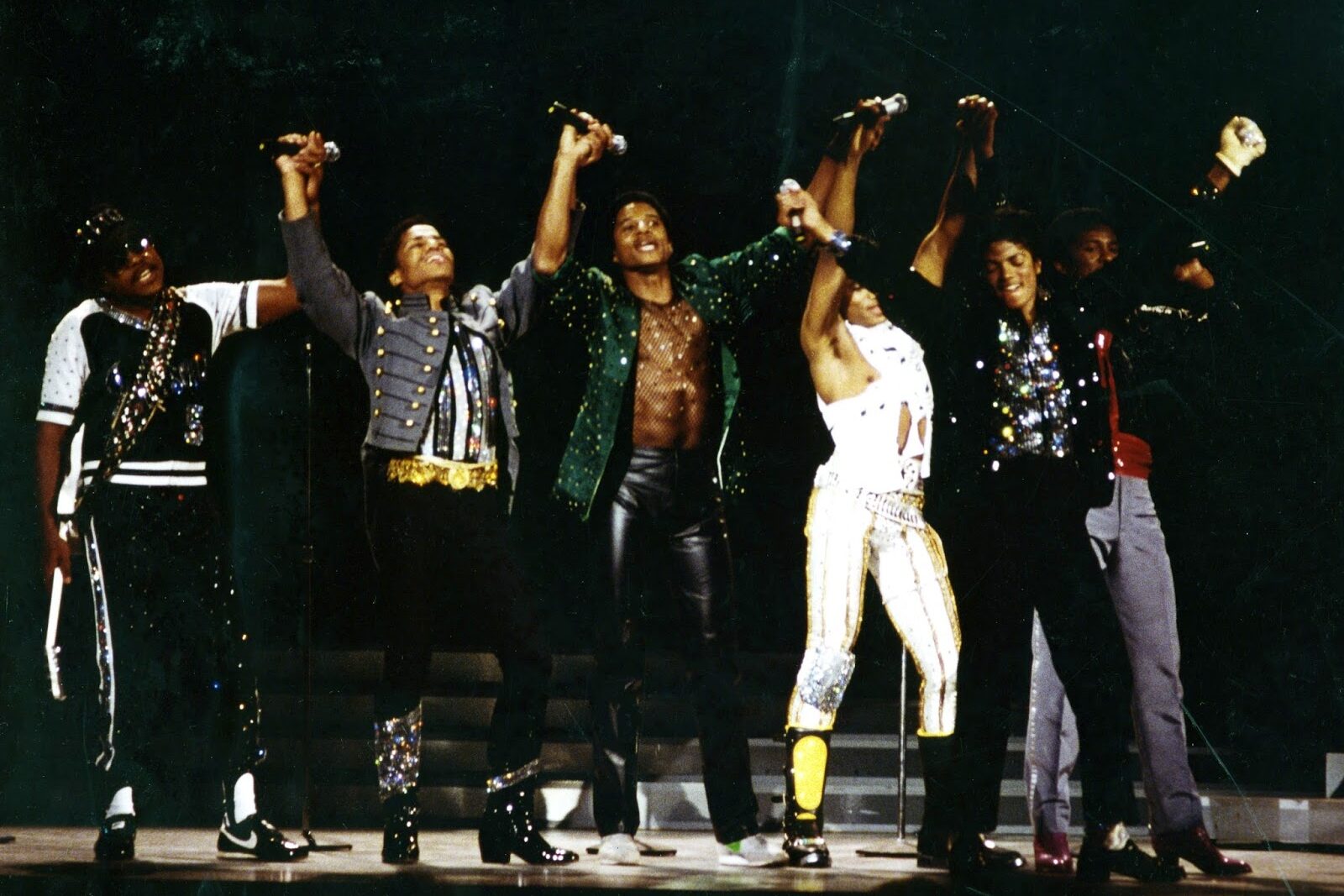
When Michael Jackson moonwalked across the Motown 25 stage, time stopped. Dressed in a glittering jacket and one glove, he seemed untouchable yet human. Billie Jean pulsed through the speakers, and the crowd gasped as his feet floated backward. It wasn’t just a dance move; it was history unfolding. That night, pop music became performance art. Every gesture felt deliberate, every beat filled with grace. Jackson didn’t need special effects; he was the effect. His energy, precision, and mystery changed television forever. The world saw not just talent, but transformation, and pop found its eternal king.
7. U2 at Red Rocks Amphitheatre (1983)
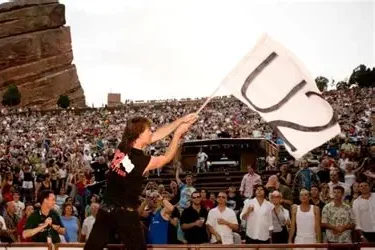
Rain poured as torches burned through the foggy Colorado night. U2 stood onstage, drenched but unstoppable. Bono’s voice cut through the storm like prayer, while Sunday Bloody Sunday echoed through the canyon. It was fierce, defiant, and deeply emotional. The elements tried to steal the show, but U2 embraced them. The performance became iconic not because it was perfect, but because it was alive. Their faith and fire made the concert feel sacred. That Red Rocks night turned four Irishmen into legends, proving that passion shines brightest when the skies try to dim it.
8. Madonna at the MTV VMAs (1984)
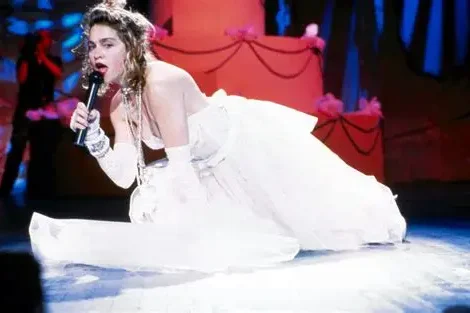
When Madonna stepped out in a wedding dress to perform Like a Virgin, she wasn’t just performing; she was rewriting the rules. Rolling on the floor and smiling through controversy, she turned pop into theater. It was bold, strange, and unforgettable. Critics were divided, but the audience was mesmerized. She wasn’t afraid of shock; she embraced it. That night, she showed that performance could be playful and powerful at once. Madonna didn’t ask for permission to express herself, she just did it. The VMAs became her playground, and pop culture would never look the same again.
9. Elvis Presley’s Comeback Special (1968)
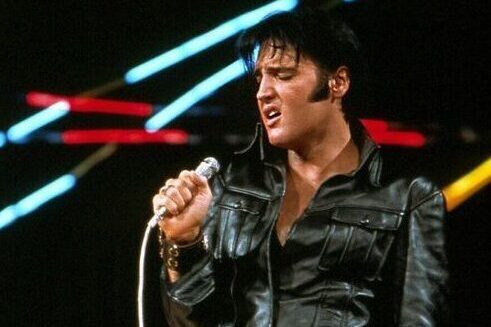
Elvis Presley walked onto the NBC stage in black leather, confident yet humbled. Years away from live performance had not dulled his spark. With laughter, sweat, and soul, he reminded the world why he was the King. Each song carried warmth and raw emotion. Fans saw the boy from Memphis reborn as a man in command of his craft. The show wasn’t just about nostalgia; it was about revival. That special gave Elvis back his crown, not through hype, but heart. For one night, music met its maker again, and he sang like it was salvation.
10. Beyoncé at Coachella (2018)
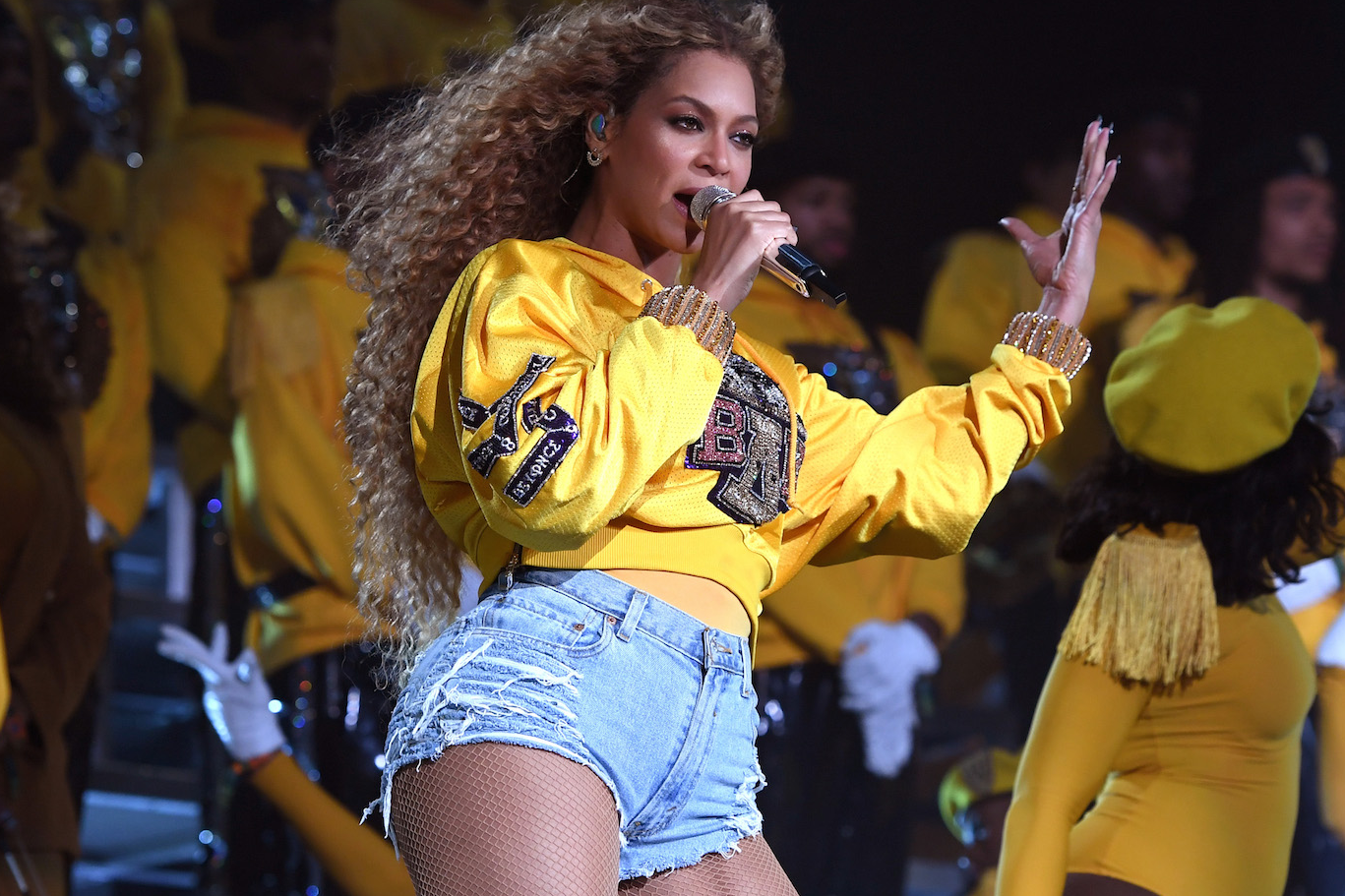
Beyoncé’s Coachella performance wasn’t just a show; it was a celebration of culture, history, and excellence. Surrounded by a full marching band and vibrant dancers, she turned a desert stage into a living classroom of pride. Every song, every detail, carried meaning. It was art fused with purpose. Beyoncé sang, danced, and commanded attention without missing a beat. Her confidence radiated like sunlight, her precision unmatched. Coachella became Beychella that night, and the world stood in awe. It wasn’t just entertainment; it was legacy in motion, a reminder that greatness can be powerful and graceful all at once.
11. The Rolling Stones at Altamont (1969)
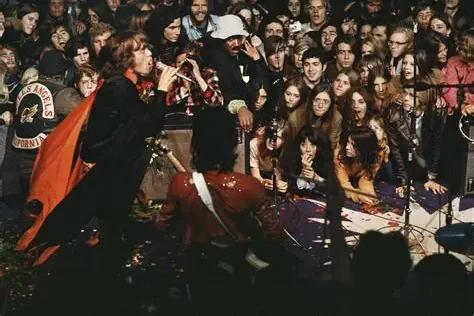
The Rolling Stones took the stage at Altamont expecting peace, but chaos met them instead. The free concert spiraled into tragedy, marking the dark side of the 60s dream. Yet through fear and confusion, the band kept playing. Their music became both shield and confession. It wasn’t triumph, but truth. The performance stood as a turning point for rock, showing that freedom had consequences. Jagger’s uneasy poise reflected the moment perfectly. Altamont wasn’t beautiful, but it was unforgettable. It ended an era and began a new realism in music’s story of rebellion and consequence.
12. Prince at the Super Bowl Halftime Show (2007)
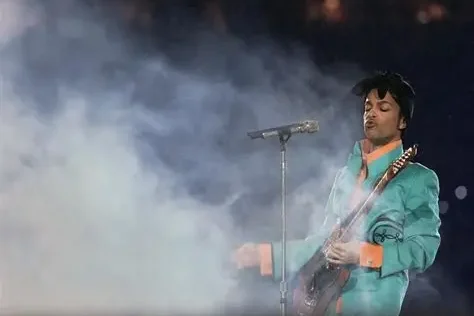
As rain fell over Miami, Prince stepped onto the Super Bowl stage with quiet authority. The sky crackled with lightning as he launched into Purple Rain. It was cinematic perfection. The storm didn’t slow him; it became part of the performance. His silhouette glowed behind a giant curtain, his guitar howled through the downpour. Every note felt intentional, every moment powerful. He didn’t need words to prove mastery; he simply played. By the time he finished, the world was speechless. That night, Prince didn’t perform against nature, he performed with it, and created pure musical magic.
13. Johnny Cash at Folsom Prison (1968)
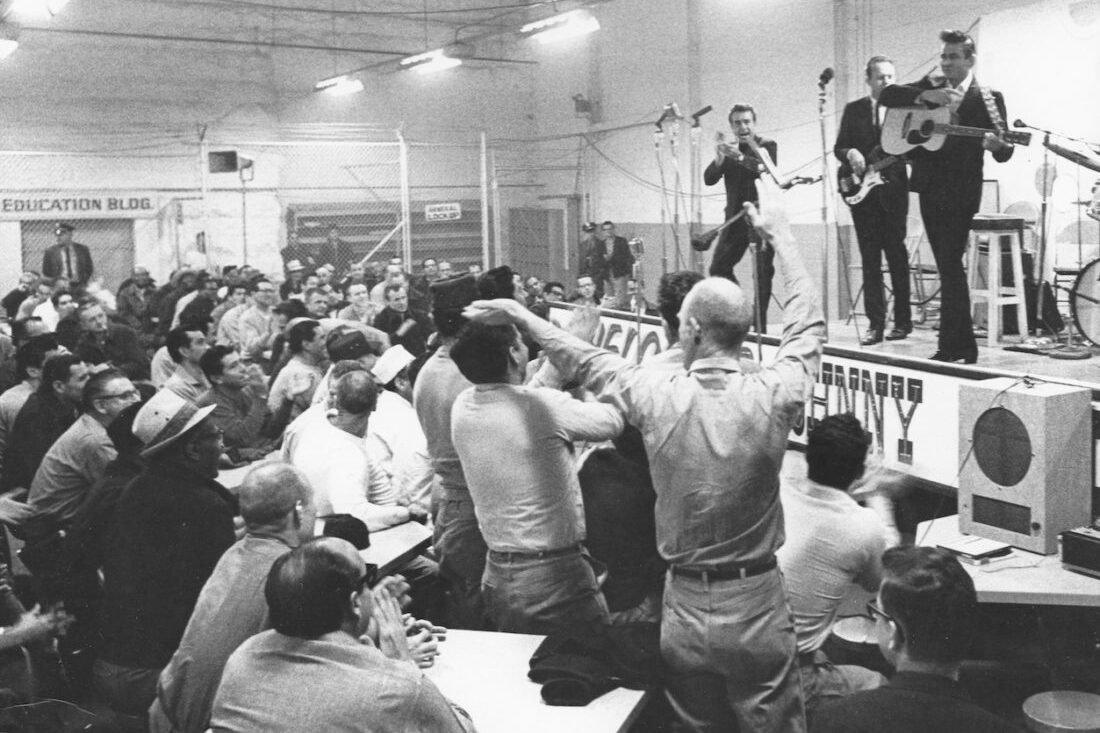
When Johnny Cash sang for inmates at Folsom Prison, the walls seemed to melt away. His deep voice carried humor, pain, and empathy in equal measure. He wasn’t there for spectacle; he was there to connect. Each lyric felt like a conversation, not a performance. The men cheered, laughed, and found a moment of escape. Cash’s raw humanity filled every corner of that room. The live recording captured a truth few artists ever reach. That day, music proved it could bridge divides and restore dignity. Cash didn’t sing to the prisoners, he sang with them.
14. The Who at Leeds University (1970)
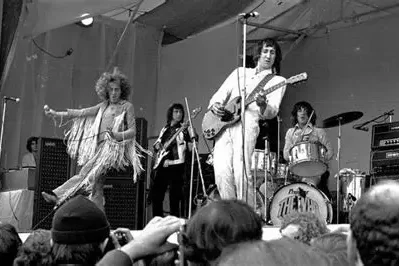
When The Who performed at Leeds University, they weren’t chasing polish, they were chasing passion. The sound was raw, loud, and gloriously imperfect. Pete Townshend’s guitar crashes and Keith Moon’s manic drumming turned every note into adrenaline. Students packed the hall, feeling every beat like a heartbeat. The recording became legendary because it captured authenticity, not production. It was rock stripped to its essence, a dialogue between chaos and control. That night, The Who proved that power comes from imperfection, and sometimes the loudest truth is the most honest one you can play.
15. David Bowie at Hammersmith Odeon (1973)
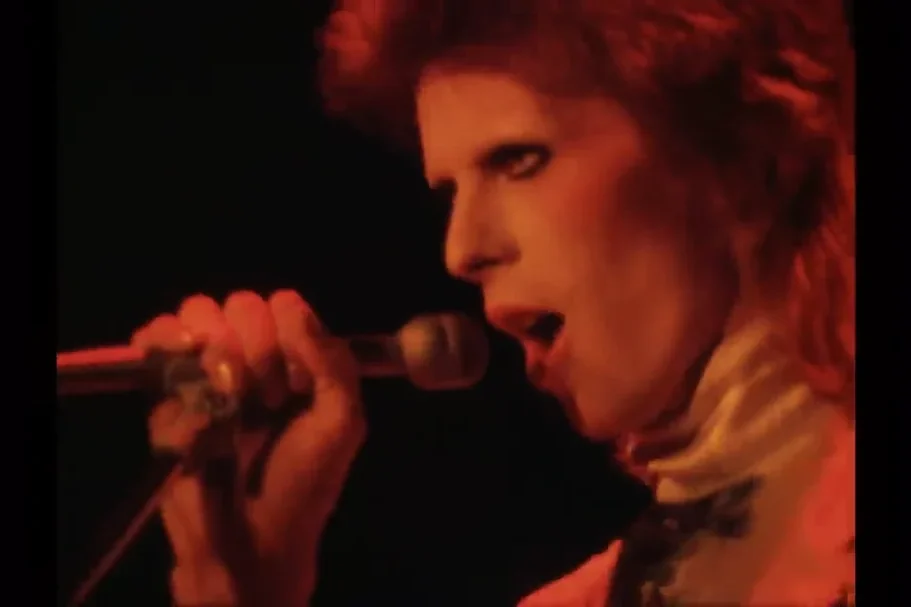
David Bowie stood beneath shimmering lights as Ziggy Stardust for the last time. When he announced it was the final show, the crowd gasped. They thought Bowie was done, but he was just evolving. It was drama turned into art. The performance glowed with emotion, glamour, and finality. Every gesture was deliberate, every word symbolic. Ziggy’s farewell wasn’t about goodbye; it was about rebirth. Bowie showed that an artist’s power lies in reinvention. That night, he didn’t end a chapter; he began a legend that would keep transforming for generations to come.
16. Live Aid in Philadelphia (1985)
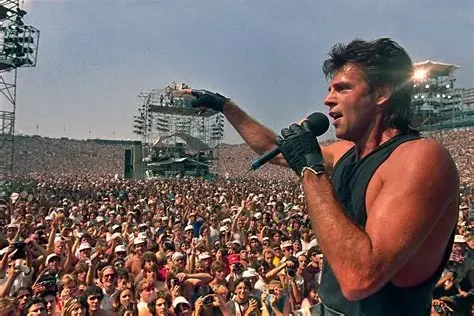
Across the ocean from Wembley, Philadelphia roared to life with its own magic. From Madonna to Led Zeppelin, artists gathered for one purpose, to help end famine. The music pulsed with unity, crossing borders and time zones. Phil Collins famously performed in both cities the same day, symbolizing connection. The performances weren’t about fame; they were about compassion in motion. Millions watched, millions donated, and history was made. Live Aid became proof that music could do more than entertain, it could heal. It was humanity’s soundtrack, sung loud enough for the world to hear.
17. Whitney Houston at the Super Bowl (1991)
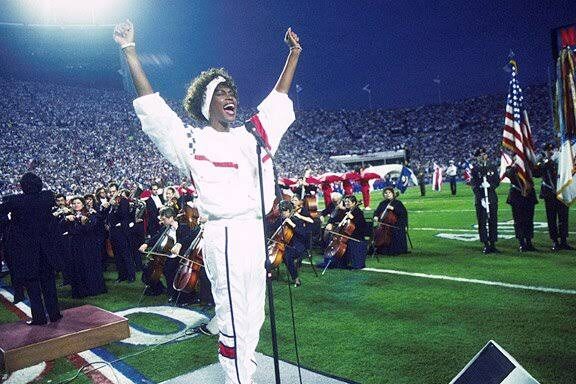
As the crowd quieted, Whitney Houston stood tall, microphone in hand. Then came the first note of the national anthem, and the world felt still. Her voice rose with unmatched clarity and strength, effortless yet powerful. It wasn’t performance, it was emotion made sound. The simplicity of her white tracksuit and natural joy made the moment even purer. When she finished, the explosion of applause said everything. Whitney turned an anthem into an experience. That performance still gives chills because it captured grace, pride, and timeless beauty in less than three minutes.
18. Oasis at Knebworth (1996)
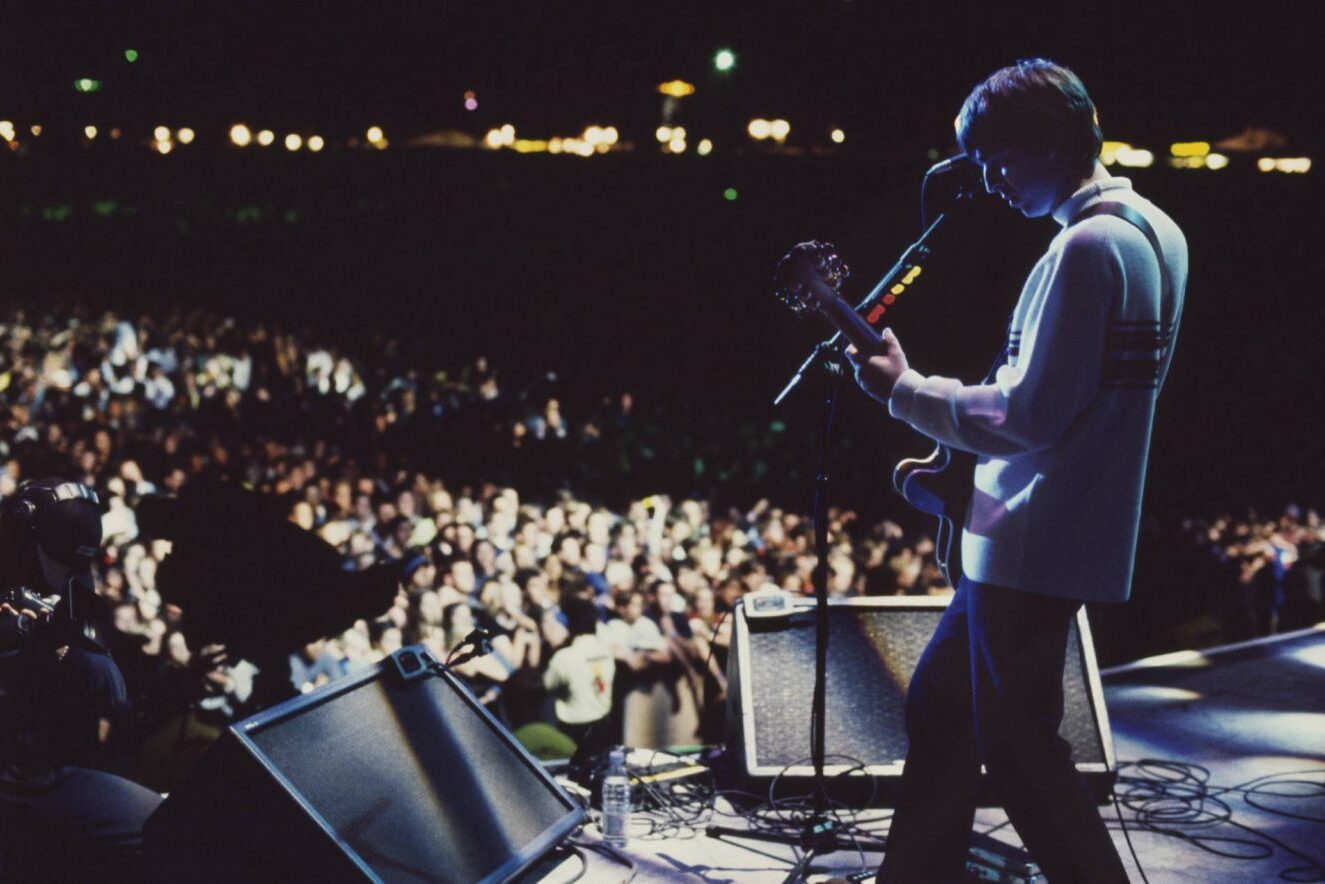
For two unforgettable nights, Oasis played before a quarter million fans at Knebworth. It was the height of Britpop, and every song felt like a national anthem. Noel and Liam Gallagher stood as symbols of swagger and sound. The audience sang every lyric, especially Wonderwall, echoing across fields and hearts. It wasn’t just music; it was belonging. That weekend, Oasis proved their power wasn’t about perfection, it was about passion. Knebworth captured a moment when optimism met chaos and harmony ruled the crowd. British rock had never felt prouder or louder.
19. Taylor Swift’s Eras Tour (2023)
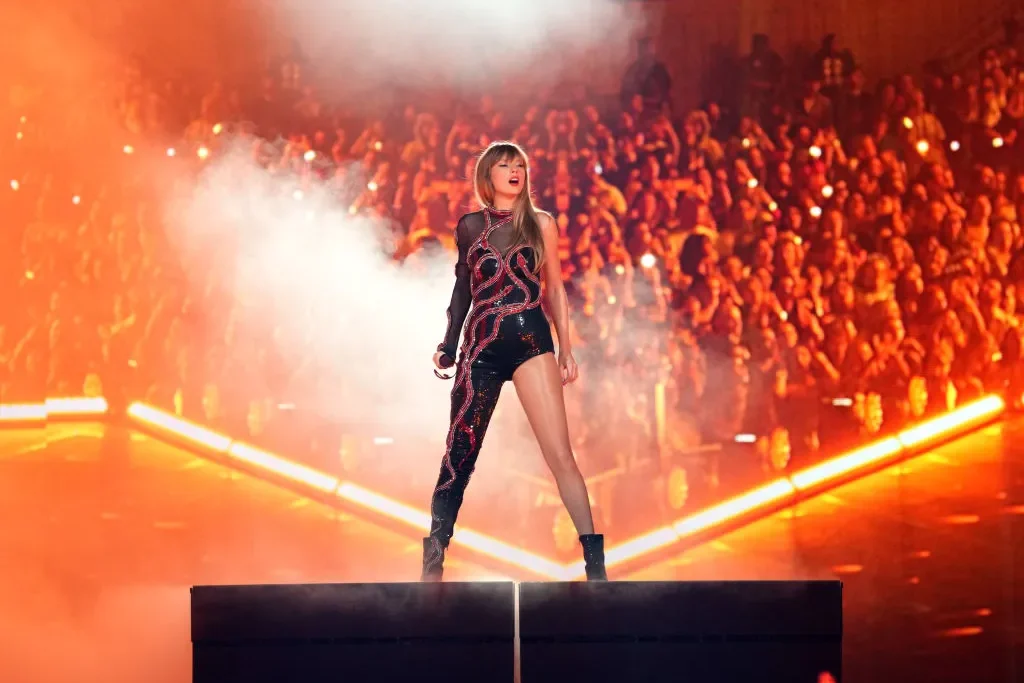
Taylor Swift’s Eras Tour wasn’t just a concert, it was a journey through her life in music. Each era celebrated a version of herself, from country beginnings to pop mastery. Fans dressed in themed outfits, traded friendship bracelets, and sang until they cried. Every lyric felt shared, every memory revisited. The production was dazzling but the emotion was simple, connection. Swift reminded everyone that storytelling remains the heart of music. Her ability to turn nostalgia into togetherness made each show unforgettable. It was community wrapped in melody, proving pop can still feel deeply personal.
20. Adele at the Royal Albert Hall (2011)
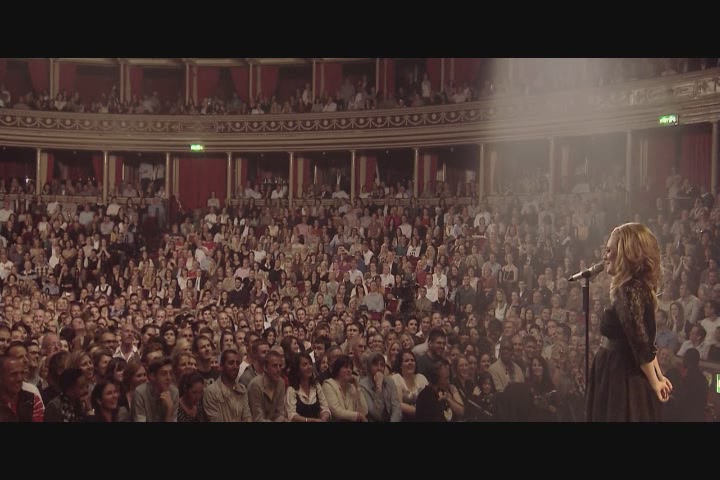
Adele stood before thousands yet made every person feel seen. Her laughter between songs felt like conversation, her singing like confession. Each note carried sincerity, especially Someone Like You, which left the crowd breathless. She didn’t need spectacle, only soul. The beauty was in her vulnerability and her ease with the audience. By the final song, it felt less like a show and more like a shared story. That night, music didn’t need grandeur, it needed honesty. Adele reminded us that emotion will always be the most powerful instrument.
This story Iconic Concerts That Made Music History was first published on Daily FETCH


